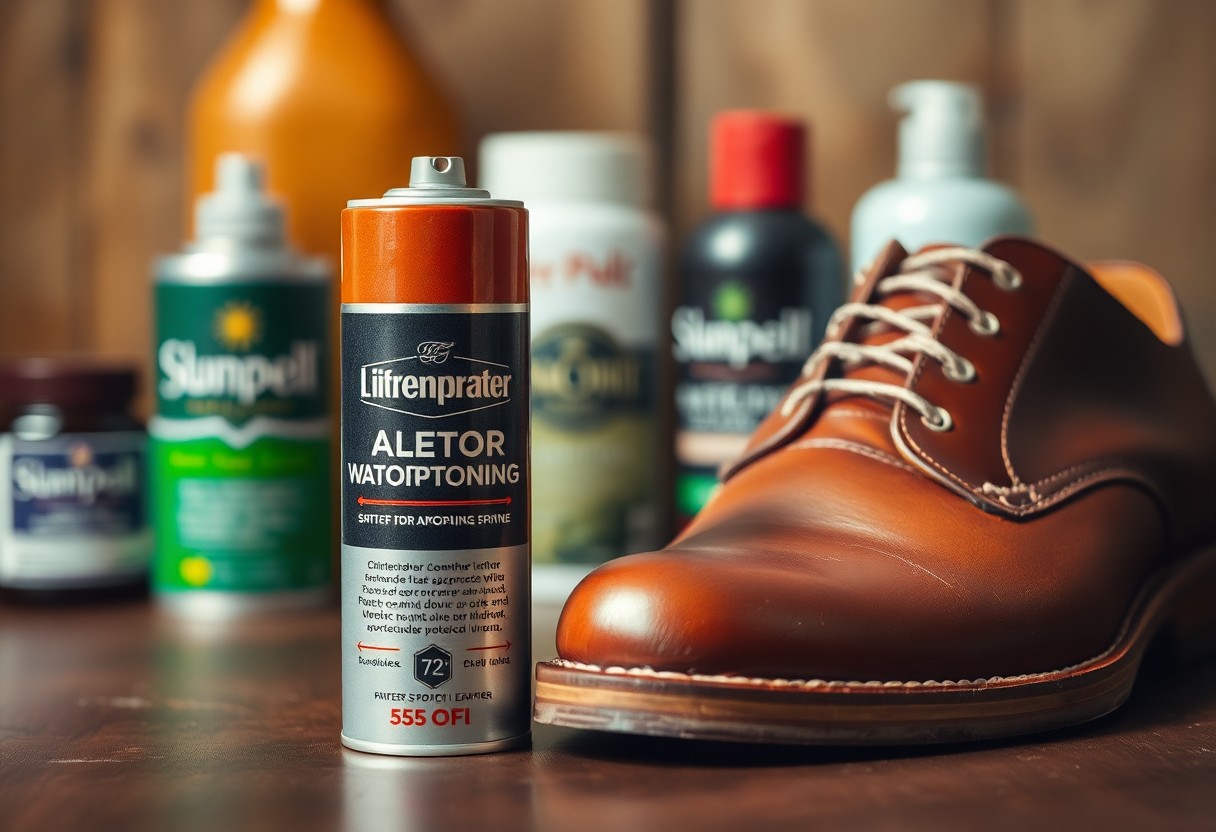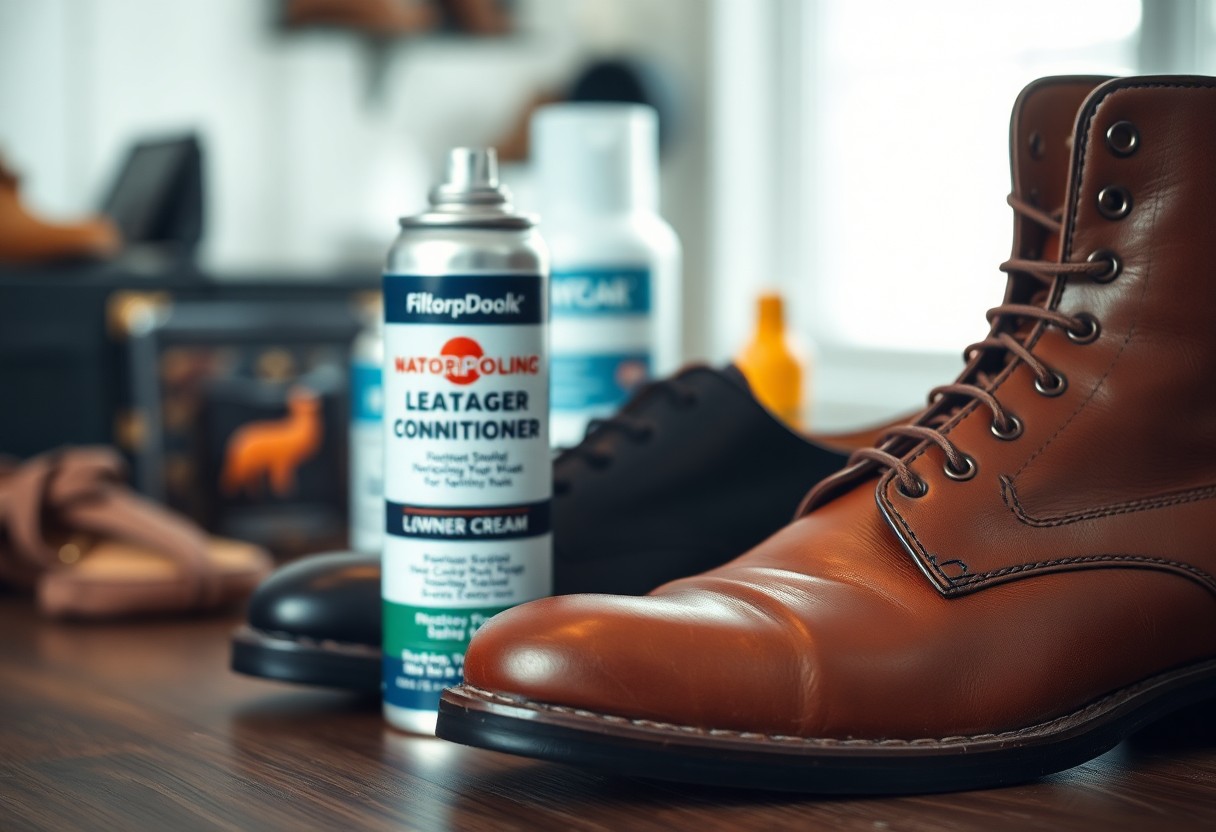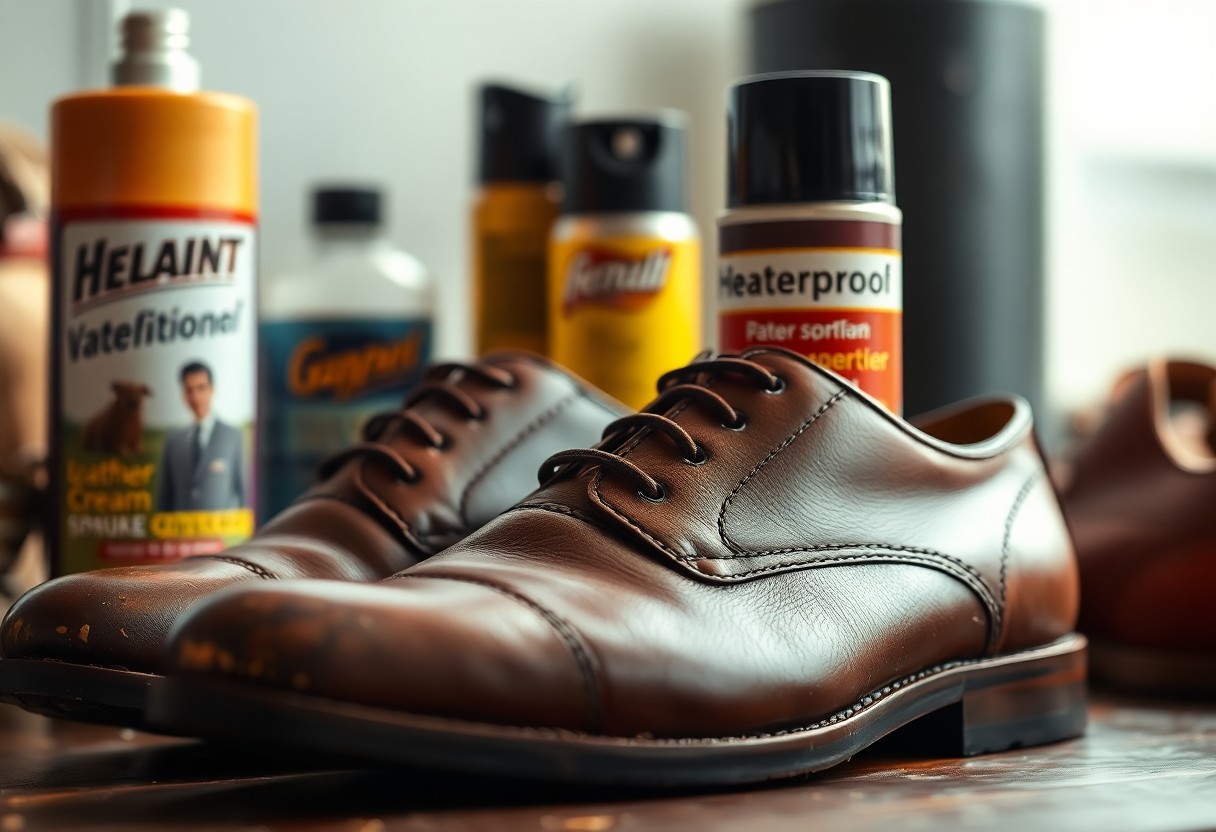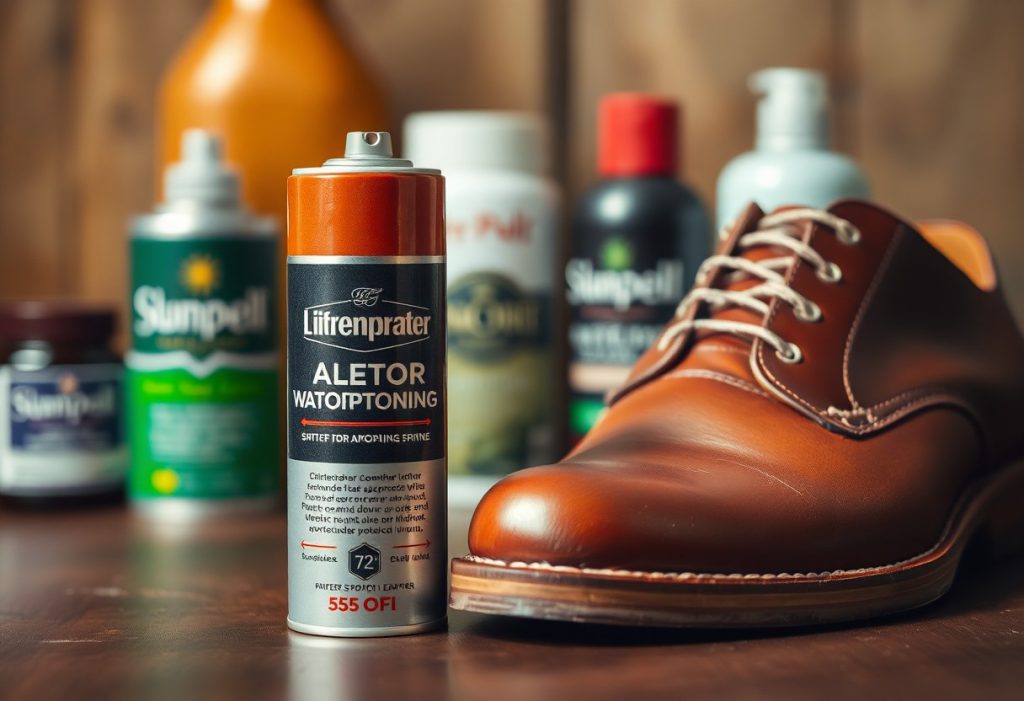Avoiding Common Leather Care Mistakes can help prevent irreversible damage to your valuable footwear. One of the most frequent errors is the application of waterproofing spray on smooth leather. While these sprays may seem like an easy fix for protecting your shoes, they can block vital nutrients from penetrating the leather, leading to dryness and cracking over time. Smooth leather shoes already possess natural water-resistant properties within their grain layer, and they require proper nourishment from shoe creams and waxes to maintain their durability. Instead of relying on sprays, choose high-quality leather conditioners and wax polishes that nourish and protect the leather, ensuring it remains in excellent condition while retaining its natural beauty.
Mastering Leather Protection Techniques for Longevity
To prolong the life of your leather products, it’s essential to understand their protective characteristics. Full grain leather features natural water-resistant properties due to its tightly woven fiber structure, which must be regularly maintained to remain effective. The longevity of your leather items relies significantly on the care they receive. Using waterproofing sprays can compromise the leather’s breathability, potentially leading to serious damage if not properly managed. Emphasizing regular conditioning and upkeep will help ensure that your leather retains its functionality and aesthetic appeal over time.
Unlocking the Unique Benefits of Full Grain Leather
After undergoing the tanning process, full grain leather preserves its original surface layer, delivering superior natural protection. Products made from this material showcase an intact grain layer, providing resistance to moisture and wear. This upper layer is abundant in natural oils and fibers that establish a protective barrier, rendering the use of additional waterproofing sprays unnecessary and potentially harmful to the leather’s health. Embracing the unique qualities of full grain leather can significantly enhance your leather experience.
Comprehending Leather’s Moisture Management and Aging Dynamics
Grain leather must maintain its ability to absorb and release moisture effectively. The pores within your leather facilitate its capacity to breathe and manage humidity, which keeps it supple and prevents unsightly cracking. However, when waterproofing sprays are applied, they can seal these pores, restricting essential airflow and disrupting the natural moisture equilibrium. Moreover, as leather ages, it requires appropriate nourishment through conditioning products. The application of waterproofing sprays can create a barrier that blocks essential conditioning oils from reaching the leather, leading to increased dryness and brittleness over time. Frequent application of leather cream ensures that your leather ages gracefully and develops a rich, attractive patina.

Steering Clear of the Waterproofing Spray Trap
Many people mistakenly believe that waterproofing spray is the ultimate solution for protecting their leather shoes, but this common practice can result in serious damage to your footwear. While these sprays provide an immediate defense against water penetration, they simultaneously block necessary nutrients from reaching the leather, setting the stage for potential long-term deterioration.
Dispelling Popular Myths About Leather Care
Influenced by aggressive marketing tactics and well-intentioned advice from shoe salespeople, you may have been led to think that waterproofing spray is essential for every type of leather shoe. This misconception has been perpetuated by numerous shoe retailers, largely due to the high profit margins and frequent repurchase cycles associated with these products. In reality, regular smooth leather possesses inherent protective qualities that do not necessitate additional spray-on barriers for effective safeguarding.
Weighing Immediate Benefits Against Long-term Implications
Damage to your leather footwear begins when waterproofing sprays create a barrier that hinders essential oils and conditioning agents from penetrating the leather. While you might notice enhanced water resistance initially, the truth is that your leather gradually becomes dry and brittle without the vital nourishment it craves. The consequences of applying waterproofing sprays to smooth leather extend beyond mere surface protection. Your leather requires ongoing nourishment to maintain its flexibility and durability. When shoe creams and conditioners cannot reach the leather due to the spray barrier, the material is at risk of cracking and deterioration, significantly shortening your shoes’ lifespan. Natural waxes and suitable conditioning treatments offer superior long-term protection while promoting the health of the leather.

Diving Deep Into the Science of Leather Maintenance
An essential aspect of effective leather care involves understanding its molecular structure. The collagen fiber networks within your leather shoes require both protection and nourishment. When applying products to leather, they can either coat the fibers or penetrate deeply into them. This interaction is critical for the long-term health of your leather footwear, ensuring it remains supple and resilient for years to come.
Recognizing the Necessity of Nourishing Leather
It is vital to acknowledge that your leather shoes require consistent nourishment to maintain their quality. The natural oils within your leather footwear help to prevent cracking and uphold flexibility. Over time, these oils diminish due to regular wear and environmental exposure. To preserve the leather’s structural integrity, it is essential to replenish these oils through diligent conditioning practices.
Understanding the Negative Barrier Effects of Waterproofing Sprays
A significant concern regarding waterproofing sprays is their tendency to create a barrier. When these sprays are applied to smooth leather, they form an impermeable layer that obstructs both moisture and essential nutrients. This barrier inhibits your leather care products from effectively penetrating the surface, leading to a progressive decline in leather quality over time.
The barrier effect of waterproofing sprays introduces a detrimental cycle for your shoes. While these sprays effectively prevent water penetration, they also restrict the absorption of conditioning products that are crucial for maintaining the leather’s health. Consequently, the leather may appear protected on the surface, but it is actually dehydrating and becoming brittle underneath. Silicone-based sprays are particularly harmful, as they create a permanent barrier that is challenging to remove without damaging the leather.
Implementing Proven Leather Protection Strategies
Contrary to widespread misconceptions, your smooth leather shoes require care strategies that align with the natural properties of full-grain leather. The best approach combines traditional methods with products specifically designed to enhance the leather’s innate protective qualities, ensuring both immediate protection and lasting durability for your footwear.
Discovering the Advantages of Wax-based Solutions
An excellent alternative to waterproofing sprays lies in premium wax-based products. These solutions work harmoniously with your leather’s natural grain instead of against it. Applying wax polish creates a protective barrier that allows the leather to breathe, making it especially beneficial for toe caps and areas subject to heavy wear.
Maximizing Benefits Through Cream and Conditioner Use
Unlike conventional spray treatments, leather creams and conditioners provide essential nourishment while preserving the leather’s inherent protective properties. Your shoes benefit from oils that penetrate deeply into the material, helping to prevent drying and cracking. Furthermore, regular application of cream and conditioner creates a cumulative effect that enhances the quality of leather over time. The natural oils within these products support the leather’s flexibility and strength, allowing it to develop an attractive patina. It is recommended to apply these products every 4-6 wears to maintain optimal leather condition.

Identifying When Waterproofing Spray is Appropriate
Unlike smooth leather, certain materials benefit significantly from waterproofing sprays. These products create an efficient water-resistant barrier on materials that lack inherent protection. Waterproofing sprays are particularly useful for suede, nubuck, and various textiles, where the material structure does not provide natural moisture resistance.
Enhancing Suede and Nubuck with Protective Sprays
When you treat your suede or nubuck shoes with waterproofing spray, you greatly enhance their resistance to water damage. Although many modern suede materials come pre-treated with factory waterproofing, additional protection can help maintain this defense over time. The application of spray establishes a protective layer that effectively prevents water from penetrating these delicate materials.
Protecting Textile Footwear from Water Damage
Textile footwear requires specialized protection against moisture damage. Materials such as canvas, mesh, and synthetic fibers can achieve enhanced water resistance through systematic spray application. Most textile materials are naturally absorbent, making them vulnerable to water damage and staining.
Moreover, waterproofing sprays for textiles assist in preserving the shape and color of your shoes. The barrier they create also prevents dirt and debris from embedding in the fabric fibers. It’s advisable to reapply the spray every 3-4 months for optimal protection, depending on the frequency of wear and prevailing weather conditions.
Expert Insights on Proper Leather Maintenance
Not every leather treatment is created equally. Industry experts recommend against the use of waterproofing sprays on smooth leather. Your full-grain leather shoes require specialized care that allows them to breathe and absorb nourishing treatments. Using improper products can lead to leather damage costing you hundreds of dollars.
Advice from Tannery Experts
To maintain the quality of leather, tannery specialists emphasize that full-grain leather inherently possesses natural water-resistant properties in its outer layer. Preserving the leather’s protective qualities necessitates regular application of oils and waxes. Waterproofing sprays can block these essential treatments from reaching the leather, undermining its longevity.
Guidance from Professional Cobblers
For the long-term care of leather, professional cobblers advocate for the use of wax-based products instead of waterproofing sprays. Your shoes will flourish under treatments that both protect and nourish the leather. Data suggests that 90% of premature leather damage arises from using incorrect care products.
By adhering to proper leather care techniques, your shoes can last an impressive 15-20 years instead of just 2-3 years with inadequate maintenance. Traditional wax treatments allow leather to retain its natural properties while providing sufficient moisture protection. Your investment in quality leather footwear deserves meticulous care practices that ensure both aesthetic appeal and durability.
Essential Takeaways for Superior Leather Care
Your smooth leather shoes require proper care that avoids waterproofing sprays. Instead, utilize shoe creams and waxes that nourish the leather while providing effective water resistance. Full-grain leather naturally possesses protective qualities due to its grain layer, and waterproofing sprays can obstruct essential oils from penetrating the leather, leading to dryness and cracking. Reserve waterproofing sprays for suede, nubuck, or textile footwear where they can perform effectively. By selecting the right products, you can ensure your leather shoes remain protected and last for years.
Your Questions About Leather Care Answered
Q: Why are waterproofing sprays harmful to smooth leather shoes?
A: Waterproofing sprays create a barrier on leather that prevents essential oils and conditioners from penetrating the material. While they do offer some water protection, they hinder the necessary nourishment of the leather, which can lead to drying and potential cracking over time, ultimately reducing the lifespan of the shoes.
Q: What should I use instead of waterproofing spray on smooth leather shoes?
A: Consider using a combination of shoe cream and wax polish. Shoe cream provides essential oils to nourish the leather, while wax polish forms a protective layer that helps repel water. This method works synergistically with the natural protective properties of full-grain leather, maintaining the leather’s health while effectively resisting water.
Q: Which types of footwear can safely have waterproofing spray applied?
A: Waterproofing spray is suitable for materials like suede, nubuck, and textiles. These materials lack the natural protection found in smooth leather and thus benefit from the protective barrier created by waterproofing sprays. Many modern suedes and nubucks may already have factory waterproofing treatments, but additional spray applications can enhance and maintain this level of protection.
The Article Why you shouldn’t use waterproofing spray on regular smooth leather and better alternatives appeared first on My Shoes Finder
The Article Waterproofing Spray on Smooth Leather: Risks and Alternatives Was Found On https://limitsofstrategy.com

